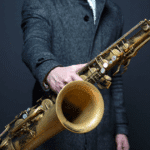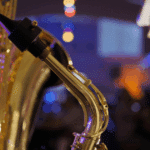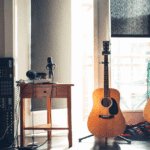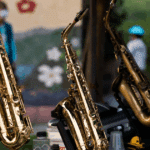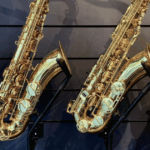While this question is pertinent, it is no less so complex to be able to give a firm and definitive answer. In fact, there is not one answer, but many. answerswhich will depend on use your instrument, the way you play it sound that you want to find and, quite simply, of your own learning habits. So to get a clearer picture, we turned to professionalsand we asked them about their instrument and this specific aspect, in particular Florent Abadiesaxophone teacher at Nantes CRR. We also heard from a number of contemporary jazzmenas Christophe Panzani, Laurent Bardainne and again Thomas de Pourquery.
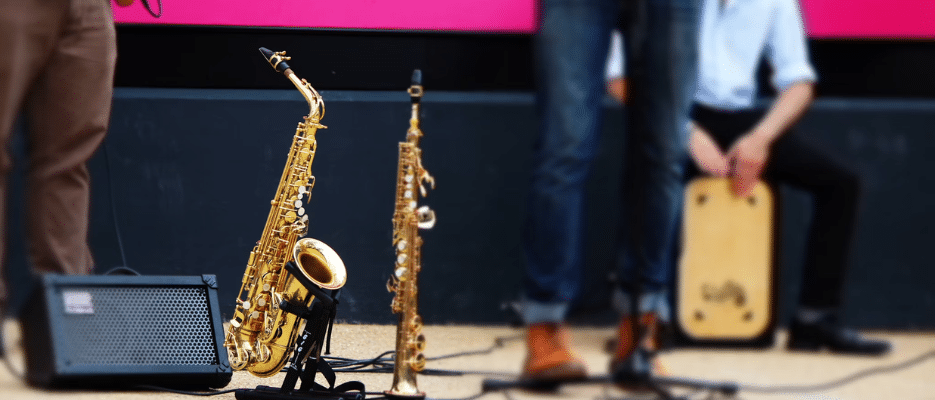
Teacher testimonial
Florent Abadie
What is your musical background?
Florent Abadie : I started the saxophone at the age of ten at Tarbes Conservatory. After a bac A MusicI studied at theToulouse II le Mirail Universitywhere I obtained a degree in Musicology.
At the same time as I was studying, I started performing in a number of shows. rock, variety, rhythm and blues bands and others. There I met some excellent musicians with whom we started to make music. jazzand free-jazz as well as improvised music. This taste came to me through the study and practice of contemporary musicwith the various game modes inherent to the saxophone that I wanted to explore in theimprovisation.
I then joined Bordeaux Conservatoirein the Jean-Marie Londeixwhich had a profound effect on me, through its teaching qualityhis intransigencehis seamless investment his instrument, his incredible mastery of the classical and contemporary repertoireand of course his international career so prestigious.
Then, after obtaining a 1st prize saxophoneof chamber music and decipheringI returned to Boulogne-Billancourt Conservatoire in the Jean-Michel Gouryin which I obtained a 1st prize saxophone. I currently teach at Nantes CRR (Conservatoire à Rayonnement Régional)with my colleague Nicolas Herrouet.
It's always been clear to me that I could only have played one type of repertoire, so much so that I could only have played one type of repertoire. instrument is rich and varied. For the last ten years or so, I've also been practising Balkan music within the fanfare Le Spectre d'Ottokarand we have made several trips to Serbia in Guča and in Macedonia in Kočanito learn directory and techniques so specific to their playing stylestransmitted oral and without scoresfrom exceptional musicians.
How long have you been teaching the saxophone?
J'sign since the age of 17, that's almost 35 years now!
What is the level and age of your students?
I have beginners short cycle III: CEM (Certificat d'études musicales) or CFEM (Certificat de fin d'études musicales). Students aged 7 to 19.
What advice would you give your students about the need to change their saxophone mouthpieces, and how often?
First of all, the beak is just one "toolan interface between the musician and theinstrument. Even if he contributes, it is not he who does the work. "sound of the musician is theinstrumentalist himself.
In fact, for the nozzle change frequencyIt all depends on the level of instrumentalist and repertoire played. If it is common for a professional jazzman to play old beaks for a very long time (most of his life, if not his whole life!), a classical saxophonist with a concertist should change spout much more regularly, usually between two and five yearsor perhaps even less for some.
Concerning studentsFrom a certain level, say a Conservatory cycle IIIit is advisable to change your mouthpiece every five to ten yearsaccording toequipment condition and instrumental practice. For the beginners in the early years, as soon as possible after thepurchase of the instrumentit becomes necessary toinvest in a good "classic" mouthpiece type Selmer or Vandoren.
For all musicians playing a other style (jazz, rock, contemporary and traditional musicetc.), the problem is different. As there are many choice and diversity in brands and modelsThe change often comes about not because the mouthpiece is worn ("rinsed", "emptied", "hollow"...), but by want to change or sound according to its styleor to be more at ease with instrumental playing.
What would be the consequences of not changing your mouthpiece regularly?
If it's not right maintainedwith a systematic cleaning after use at clean, lint-free soft cloththe beak risk ofdamage and towear out fasternot to mention the simple fact that hygienic : herpes, mouth ulcers, oral mycoses... It is advisable to clean at least once a month the beaks, either at the70° alcohol or to thesoapy water always coldespecially for ebonite spoutsa plastic solidified by adding sulphurotherwise they "going green.
L'scaling by the saliva is also involved in changing the shape of the beakinducing a altered perception of play.
Finally, if the reed/ligature friction doesn't seem to have too muchimpacts on the premature ageing of the beakit is possible that the the very structure of the beak visit changes slightly over timeunder the action of temperature changes resulting, for example, in different sensations of perceptionboth in terms of sound emission that the stamp. For all these reasons need to change mouthpieces more regularly.
Artists' testimonials
Christophe Panzani
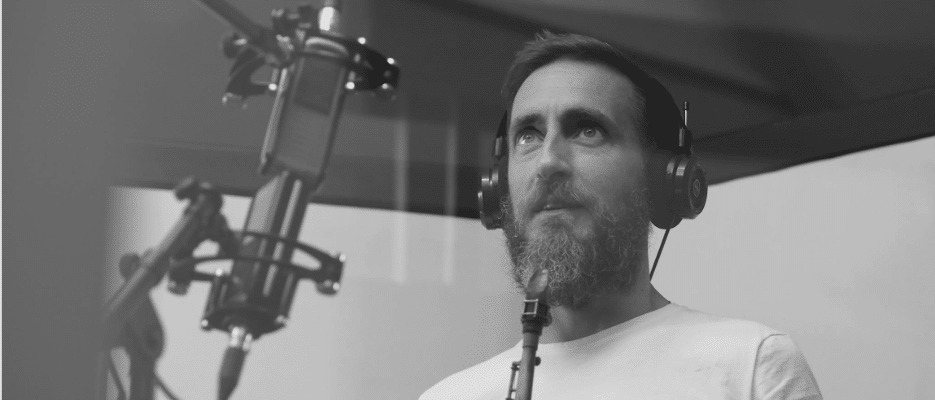
How long have you been playing the saxophone?
Christophe Panzani : It's been a long time, since I was six or seven.
What is your relationship with your instrument? Do you have several?
I've spent the most time with him and it's really bonding! Yes, I have several saxophones. I mainly play tenorI have two. One that I play all the time, one that I mostly work on at home. And I have a soprano and a viola (my first saxophone) which I play very rarely.
The same goes for the mouthpieces. Do you have several depending on the style of play?
I have several nozzlesbut it's like a the way. I have kept almost all my beaks, but once I am on a new spout I never go back. Not because I want to, just because I can't.
I feel like change to be as close as possible to something that would not be biasedagainst which I should not fight to get where I want to goand not a beak that would forcedand who restricted.
A beak that leaves me freewhich is faithfulwith whom the feeling remains the sameor equal and constant.
Do you prefer "vintage" mouthpieces that have already been used, or "new" mouthpieces? composite materials or traditional new ebonite mouthpieces?
Definitely new mouthpieces. At first I used ebonite spoutsand then, a long time ago, metal mouthpieces. Then I played for a very long time on wooden spoutsI recently changed to my latest mouthpiece, which is again made of ebonite.
How often do you change mouthpieces to get comfortable with your instrument?
Definitely new mouthpieces. At first I used ebonite spoutsthen a long time ago metal spouts. Then I played for a long time on wooden spoutsand I recently switched to my last spout which is once again in ebonite.
What would be the disadvantages of not changing mouthpieces?
I'm just thinking about habit. I have the feeling that habit is a dangerous comfort. Getting too used to it probably locks you in. And I have the impression that change keeps you awake to look for other things, for example. game modesSo I imagine I'll soon feel the need to try other things!
Christophe Panzani Quintet / Quatuor Voce / Arte Combo
Laurent Bardainne

What type of mouthpiece do you use?
Laurent Bardainne I have an old Otto Link mouthpiece from the 70s that works very well. I've tried made-to-measure 3D mouthpieces. I've tried them in concert but I quickly returned to my first love. I regularly try out new ones, but here again, I quickly return to my first love.
Laurent Bardainne & Tigre d'Eau Douce
Facebook : @Laurentbardainnetigredeaudouce
Thomas de Pourquery

Do you regularly change your mouthpiece?
Thomas de Pourquery : I've been playing the same mouthpiece for twenty years, so not really!
Thomas de Pourquery & Supersonic
Facebook : @thomasdepourquerypage
Latest albums
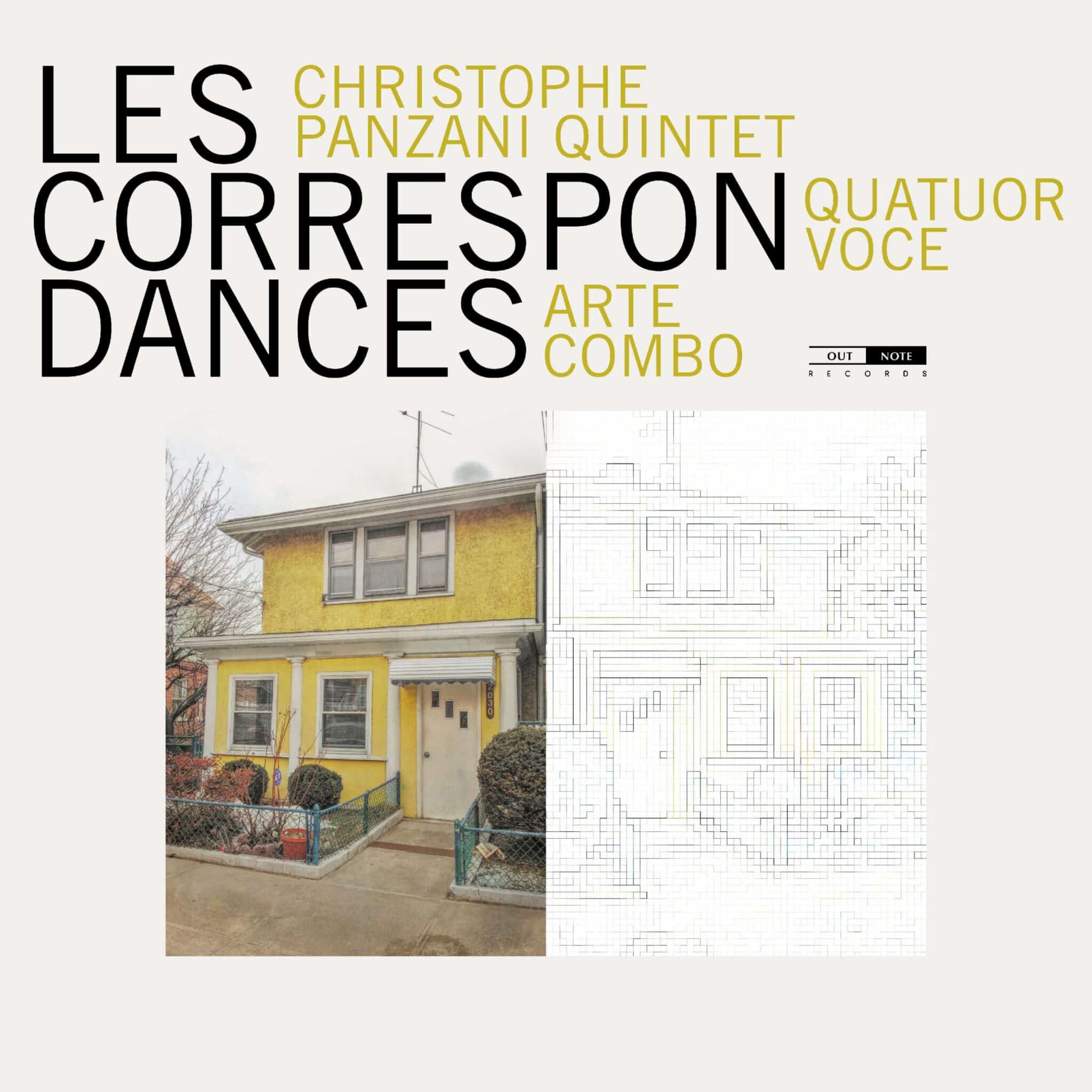
(Outnote Records / Outhere)

(Heavenly Sweetness)
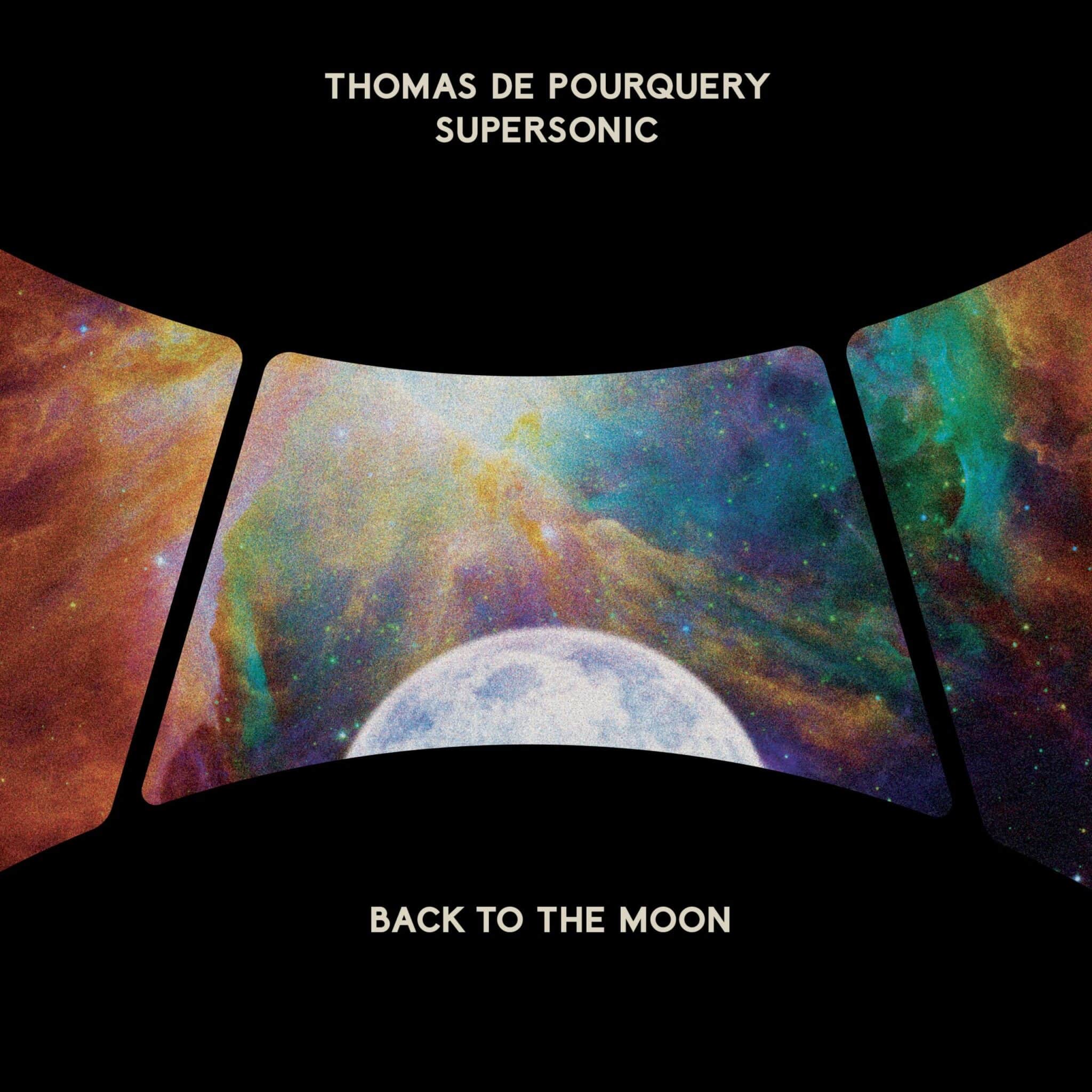
(Lying Lions Production / IDOL / L'Autre Distribution)


